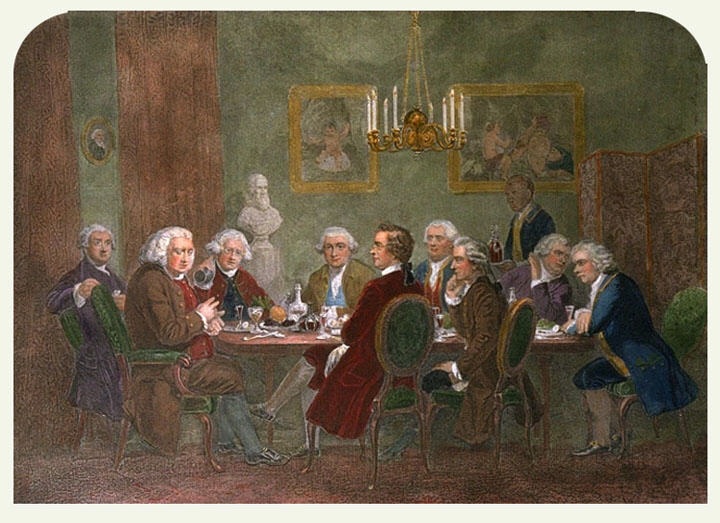
Word of the Day: Umbrage
Today’s word of the day, courtesy of the Word Guru email I get every day, is umbrage /ˈʌm brɪdʒ/, a noun which means offense; annoyance; displeasure; OR the slightest indication or vaguest feeling of suspicion, doubt, hostility, or the like (https://www.dictionary.com/browse/umbrage). FYI, the symbols between the slashes represent the pronunciation of the word according to the International Phonetic Alphabet. The /ʌ/ is the same as the schwa, /ə/, but the schwa is always unstressed. So it’s the “uh” sound (the sound of a vocalized pause), but it is in a stressed syllable. The apostrophe before /ʌm/ indicates that that syllable is stressed.
The entry on www.etymonline.com is long but worth reading:
early 15c., “shadow, darkness, shade,” from Old French ombrage “shade, shadow,” from noun use of Latin umbraticum “of or pertaining to shade; being in retirement,” neuter of umbraticus “of or pertaining to shade,” from umbra “shade, shadow,” from PIE root *andho– “blind; dark” (source also of Sanskrit andha-, Avestan anda– “blind, dark”).
The English word had many figurative uses in 17c.; the one remaining, “suspicion that one has been slighted,” is recorded by 1610s; hence phrase to take umbrage at, attested from 1670s. Perhaps the sense notion is similar to whatever inspired the modern (by 2013) slang verbal phrase throw shade “(subtly) insult (something or someone).”
Interestingly, the Wikipedia entry on “throwing shade” makes reference to a Jane Austen novel: “With such warm feelings and lively spirits it must be difficult to do justice to her affection for Mrs. Crawford, without throwing a shade on the Admiral” (Mansfield Park). The wiki then goes on to say that the phrase in modern American English originated in the Black community: “John C. Hawley [says] the expression ‘throwing shade’ was used in the 1980s by New York City’s ethnic working-class in the ‘ballroom and vogue culture,’ particularly by gender nonconformists. He writes that it refers to ‘the processes of a publicly performed dissimulation that aims either to protect oneself from ridicule or to verbally or psychologically attack others in a haughty or derogatory manner.’” I’ll let you look up what the “ballroom and vogue culture” was.
On this date in 1784, Samuel Johnson died. Johnson is one of the great figures of English language and literature, publishing his famous A Dictionary of the English Language in 1755 as well as literary and critical works throughout his life (see https://en.wikipedia.org/wiki/Samuel_Johnson for a brief but detailed biography).
Johnson was the son of a book seller, and he exhibited intelligence from early on. He was initially schooled at home, then went to Lichfield Grammar School. He later attended a different school, but the family’s financial problems caused him to return home. His father was in debt, and so Johnson spent much of his time working for his father. A bequest from a relative allowed him to attend Oxford University, but after just over a year, the money had run out, and Johnson was forced to return home. He never earned his degree though eventually Oxford gave him an honorary Master of Arts, and then years later he was awarded honorary doctorates from both Trinity College Dublin and Oxford.
He struggled to find an academic job for years because of his lack of a degree, but eventually he found one. Then, he followed former student David Garrick, who became a famous actor, to London, where his career took off, eventually. And eventually, he got to know many of the literary and cultural lights of London, even, with the artist Joshua Reynolds, The Club, which included Edmund Burke and Oliver Goldsmith, among others. He was also considered the finest conversationalist of his time.
I have to admit something: I have spent this time on Johnson’s biography because in some ways he is much like another great English writer, William Shakespeare. Both had basically grammar school educations. Both came from working-class families with fathers who had some financial difficulties. And both were brilliant writers. When people argue that Shakespeare couldn’t have been Shakespeare because he didn’t have the background, I think of Samuel Johnson. Actually, I think of the elitist bias that many people seem to have, a bias that says a poor kid cannot grow up to be a genius. Poppycock.
Johnson’s dictionary is still famous for a couple of reasons. First, he quoted from sources to illustrate the etymology of the words he included. This kind of sourcing was not typical. The dictionary that eventually displaced Johnson’s was the Oxford English Dictionary, which used and still uses “historical principles,” meaning that it traces the development of words over time by seeing how they were used in written works of the past. Johnson’s dictionary is also famous for some of the wit it displayed. Here are a few examples:
Far-fetch: A deep stratagem. A ludicrous word.
Lexicographer: A writer of dictionaries; a harmless drudge that busies himself in tracing the original, and detailing the signification of words.
Oats: A grain, which in England is generally given to horses, but in Scotland appears to support the people.
Patron: One who countenances, supports or protects. Commonly a wretch who supports with insolence, and is paid with flattery.
Politician: 1. One versed in the arts of government; one skilled in politicks. 2. A man of artifice; one of deep contrivance. (https://www.samueljohnson.com/definitions.html)
As you can see, Johnson was quite capable of verbally throwing some shade, though most people will not take umbrage at these definitions.
The image today is an engraving by D. George Thompson called “A Literary Party at Sir Joshua Reynolds’” (https://en.wikipedia.org/wiki/File:JoshuaReynoldsParty.jpg). If you go to the webpage, you can put your cursor on each of the men to see who they are, though Johnson is the second from the left.